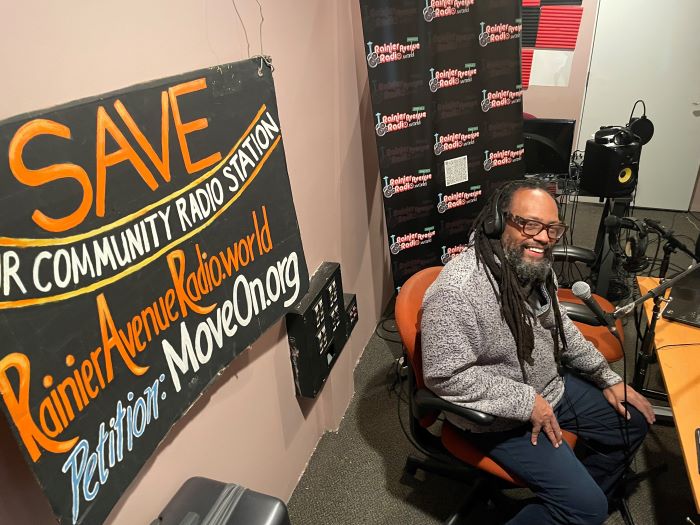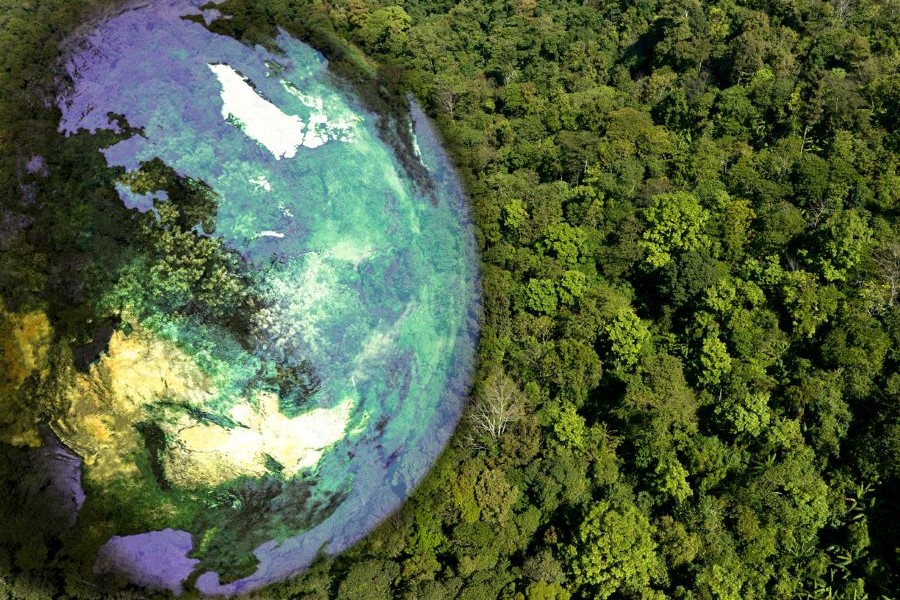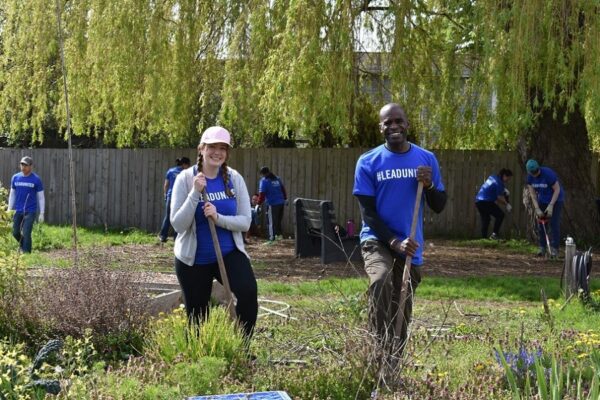An Earth Day Summit That’s Five Days Long
What do you think about when you hear about Earth Day, the annual global movement to celebrate and preserve the environment? This year, Earth Day is April 22, and EarthDay.org, the movement’s global organizer, has launched a campaign to end the making of plastics, whose chemicals are harmful to the environment. Past campaigns have focused on recycling, banning lead in gasoline, and global warming.
Rainier Avenue Radio wants to take Earth Day a step further. The Black-owned, Columbia City-based station serves South Seattle and South Seattle, home of many of the area’s communities of color. Rainier Avenue Radio and others point to reports like that of the New England Journal of Medicine, which say that climate change and fossil fuel–generated air pollution have disproportionately harmed people of color and low-income communities.
That’s why Rainier Avenue Radio is hosting a five-day Earth Day environmental summit, “Earth Deserves More Than a Day,” both virtually and at its Columbia City Theater studios this week. The summit begins on Earth Day with a panel, “What is Environmental Justice?” and will run through Friday. It is also streaming on Rainier Avenue Radio’s YouTube channel.
Tony B. Benton, Rainier Avenue Radio’s founder and general manager, hopes the weeklong event will help expand the purpose of Earth Day for communities of color.

“A lot of the times when communities of color think about Earth Day, they think of it as saving the trees,” said Benton, who spoke about Rainier Avenue’s Earth Day event and other topics on Hourglass, United Way of King County’s podcast. “Earth Day is environmental justice. It’s climate justice.
“What I choose to do with Earth Day is make sure that everyone knows that the impact is on everyone,” said Benton. “That’s air quality. That’s water quality. That’s food justice. That’s transportation justice. Those are things that are happening to our neighborhoods.”
Indeed, communities of color for years have decried and protested environmental racism:
- According to a New York Times report, African Americans are 75% more likely than other races to live near facilities that produce toxic waste. Often, that is not by accident; majority-Black Warren County, N.C., is widely regarded as the birthplace of the environmental justice movement after county residents protested state and federal lawmakers proposing to build a landfill there for thousands of tons of PCB-contaminated soil.
- Indigenous communities have lost nearly all their ancestral lands, forced to areas that expose them to high risks for contamination from toxic chemicals—an occurrence that author Daniel Brook labeled “Environmental Genocide.”
- According to an Environmental Defense Fund report, scientists calculated that Latinos, on average, breathe in 63% more particulate air pollution than they create through their activities and consumption compared to white U.S. residents who breathe in 17% less particulate air pollution than they create.
“I tell people that Black people are not just predisposed to asthma,” Benton said. “It is what is happening in our community; it’s where our communities are located that causes these air quality problems. Environmental justice is a lot of different things. And so, we are bringing together a coalition of advocates, professionals, academicians, and tribal leaders to share information on their role in environmental justice.”
Benton said Rainier Avenue Radio also seeks to “create an umbrella” for environmental justice groups in the state to learn about each other and share best practices. The broadcast will feature panels from Spokane and the Tri-Cities area.
“We are just trying to create awareness of all the things that are under environmental justice,” Benton said. “We’re letting people know that there is advocacy out there.” For more information about Rainier Avenue Radio and its event, click here.



Comments